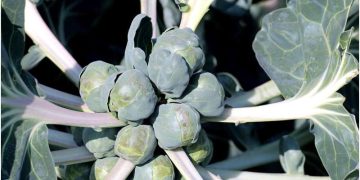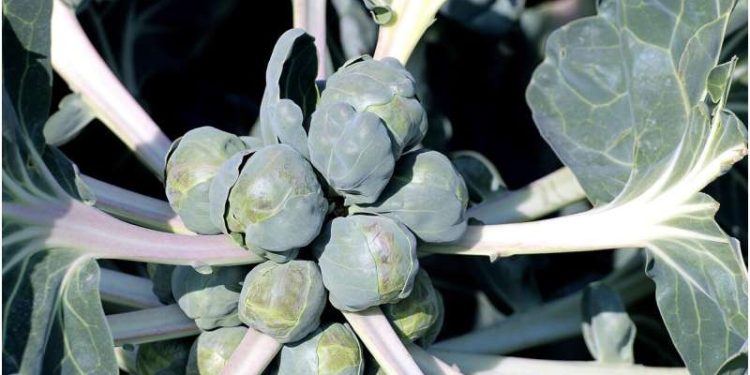Researchers from the University of Warwick are sharing food for thought about the humble sprout this Christmas, exploring several questions:
- Why having a gene mutation makes sprouts taste horrid
- Why sprouts taste better after frost
- Why they make people gassy
An area covering 3,240 football pitches is dedicated to growing Brussels sprouts in the U.K.—if you were to line them up individually, they’d stretch from London to Sydney. And there may be more to humble sprouts than we give them credit for.
Perhaps unsurprisingly, 25% of total sprout sales occur in a two-week window in December—but sprouts are not just for Christmas. Disappointingly, as the U.K. gripples with anxieties of food security and crop resistance, only half of the 750 million sprouts produced a year are eaten.
Sprouts can be traced back to Brussels from the 13th century, though the phrase Brussels Sprouts was coined later in the 1700s, by the French. Like many others tucking into their Christmas dinners this year, Brussels sprouts are part of a huge and complicated family. They are Brassicacious vegetables, alongside cabbages, broccoli, cauliflower, kale and their spicier cousins, wasabi, horseradish and mustard. It is also known as the Cruciferae family—from the Latin word meaning “cross-bearing”—due to the four colored petals of these vegetable flowers appearing like a cross.
Unlike its relatives, the sprout is the only vegetable to grow as a bud from a stem. Sprouts are rich in vitamins and minerals, and even contain anti-cancer and anti-inflammatory properties. They also contain a sugar called raffinose, which the human body can’t digest, instead producing lots of gas and perhaps commotion at the dinner table.
Nowadays, modern breeding methods, including those used at the University of Warwick, can make Brussels sprouts more palatable. Lauren Chappell, of the University’s School of Life Sciences (SLS), is part of the Defra funded Vegetable Genetic Improvement Network (VeGIN), a collaboration of researchers and institutions set to improve crop resistance and yield, particularly in relation to the twin challenges of climate change and food security.
Research Fellow Lauren Chappell said, “Sulfur is responsible for the bitter sprout taste. As we age, we lose tastebuds, which can make them more palatable—potentially why adults who hated sprouts as children now embrace them in seasonal dishes. What’s more, frosty weather converts bitter starches into sugars, leading to sweeter tasting sprouts (hence the logic behind grandparents remarking they “won’t eat sprouts until the first frost”).
“Sprouts contain a chemical, similar to phenylthiocarbamide, which only tastes bitter to people who have a variation of a certain gene. Around 50% of the world’s population have a mutation on this gene. The lucky half don’t taste the bitterness usually associated with sprouts, and therefore like them a whole lot more than everyone else.”































